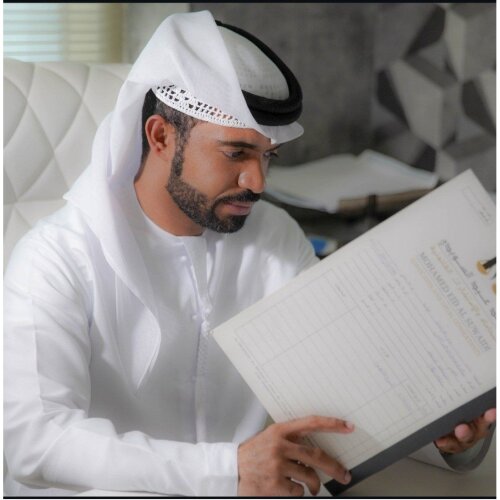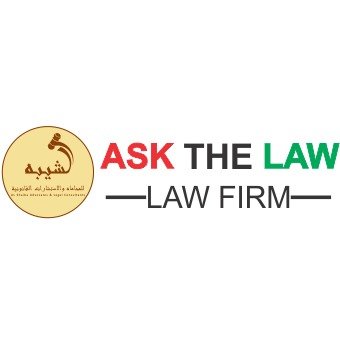
Best Private Client Lawyers in Dubai
Share your needs with us, get contacted by law firms.
Free. Takes 2 min.
List of the best lawyers in Dubai, United Arab Emirates

About Private Client Law in Dubai, United Arab Emirates
Private Client law in Dubai, United Arab Emirates covers the legal needs of individuals and families in managing, protecting, and distributing their wealth and personal affairs. It typically includes matters such as succession planning, wills, inheritance, trusts, tax planning, family business structuring, property ownership, and guardianship. In Dubai, these issues are influenced by a blend of UAE federal law, local Dubai laws, and, in some areas, the Islamic Shariah law which plays a significant role in personal status matters especially for Muslim residents. Recent regulatory changes have also allowed the application of different inheritance rules for expatriates, making it vital to seek expert guidance for personal legal matters.
Why You May Need a Lawyer
Engaging a lawyer specializing in Private Client matters in Dubai can be crucial in various scenarios. Common situations include:
- Preparing and registering wills to ensure your wishes are honored according to local laws.
- Managing inheritance issues, especially when there are potential conflicts between Shariah law and foreign nationals' home country laws.
- Establishing trusts or foundations to protect family wealth and assets for future generations.
- Advising on succession planning for family businesses and ensuring smooth generational transitions.
- Addressing complex family matters like guardianship of minors, divorce settlements, or prenuptial agreements.
- Navigating property ownership, especially for non-citizens who may face restrictions or require special structures for ownership.
- Advising on and handling tax implications and international estate planning for expatriates.
Because the legal environment in Dubai combines local, federal, and sometimes religious law, professional legal advice helps avoid costly mistakes and ensures that your interests and those of your loved ones are protected.
Local Laws Overview
Private Client law in Dubai is shaped by a mix of federal UAE law, Dubai-specific regulations, and Shariah principles:
- Inheritance and Succession: For Muslims, UAE law automatically applies Shariah inheritance rules. Non-Muslims can register wills with the Dubai Courts or the DIFC Wills Service Centre to apply different succession laws.
- Wills: The DIFC Wills Service Centre allows non-Muslim expatriates to register English-language wills that can designate beneficiaries as per their wishes, subject to certain requirements.
- Guardianship: For minors, custody or guardianship is typically determined based on a combination of Shariah and local civil rules unless a valid will states otherwise for non-Muslims.
- Trusts and Foundations: The DIFC and ADGM free zones offer legal structures for trusts and foundations, allowing asset protection and estate planning similar to some common law jurisdictions.
- Family Law: Matters like marriage, divorce, and child custody can be governed by Shariah or, for non-Muslims, by the laws of their home country, subject to registration and approval.
- Property Law: Foreign nationals usually purchase property in designated areas and may need tailored solutions for estate planning to ensure smooth transfer of assets.
Navigating these laws requires careful planning and an understanding of the latest regulations, making professional legal advice indispensable.
Frequently Asked Questions
What happens if I die without a will in Dubai?
If you die without a will in Dubai, for Muslim residents, Shariah law automatically applies to the distribution of your estate. For non-Muslim expatriates, the default rules may still be influenced by Shariah principles unless a registered will is in place.
Can foreigners make a will in Dubai?
Yes, non-Muslim foreigners can make and register wills in Dubai. This can be done through the Dubai Courts or the DIFC Wills Service Centre, which allows for non-Shariah distribution.
Does a will registered in my home country apply in Dubai?
Generally, foreign wills are not automatically recognized. You should register a will in Dubai to ensure your wishes are enforced according to local law.
Are trusts recognized in Dubai?
Trusts are recognized in certain free zones, primarily the DIFC and ADGM. Outside of those areas, traditional trust structures may not be enforceable.
Is inheritance tax applicable in the UAE?
Currently, there is no inheritance tax in Dubai or the wider UAE, but other taxes may apply depending on international circumstances.
How is guardianship of minor children determined if parents pass away?
Guardianship is generally determined by Shariah law, unless a valid will registered locally specifies the guardian, particularly for non-Muslims.
Can I leave property to anyone I choose?
Muslims are subject to Shariah inheritance rules, which prescribe specific shares for heirs. Non-Muslims may designate beneficiaries of their choice through a locally registered will.
What is the process for registering a will in Dubai?
Non-Muslims can register wills with the Dubai Courts or with the DIFC Wills Service Centre, often requiring personal attendance and the involvement of legal professionals.
How does divorce affect my estate planning?
Divorce can significantly impact your estate, beneficiary designations, and guardianship arrangements. It is advisable to review and update your will and estate plan after a divorce.
What happens to my bank accounts if I die in Dubai?
Bank accounts are typically frozen upon death until the inheritance process is complete. Having a registered will and clear beneficiary details can help expedite the release of funds.
Additional Resources
For more information and support, you can consult the following resources:
- Dubai Courts - Personal Status Section for local will and inheritance matters
- DIFC Wills Service Centre for non-Muslim expatriate wills
- Dubai Land Department for property ownership and transfer regulations
- Ministry of Justice - Family Guidance Section for family law advice
- DIFC and ADGM for information on trusts and foundations
- Licensed law firms in Dubai specializing in Private Client matters
Next Steps
If you require legal assistance for any Private Client matter in Dubai, consider the following actions:
- Assess your needs, whether they relate to wills, inheritance, guardianship, trusts, or family matters.
- Collect all key documents, including identification, property deeds, and any existing legal paperwork.
- Contact a qualified lawyer or law firm specializing in Private Client law in Dubai for a confidential consultation.
- Discuss your situation openly and address any concerns about local regulations, especially for expatriates.
- Take note of all advice provided and ensure you understand the steps required to protect your assets and family.
- Register wills or other documents with the relevant authorities as advised by your legal specialist.
Engaging early with a legal expert helps clarify your rights, ensures compliance with local law, and provides peace of mind for you and your loved ones.
Lawzana helps you find the best lawyers and law firms in Dubai through a curated and pre-screened list of qualified legal professionals. Our platform offers rankings and detailed profiles of attorneys and law firms, allowing you to compare based on practice areas, including Private Client, experience, and client feedback.
Each profile includes a description of the firm's areas of practice, client reviews, team members and partners, year of establishment, spoken languages, office locations, contact information, social media presence, and any published articles or resources. Most firms on our platform speak English and are experienced in both local and international legal matters.
Get a quote from top-rated law firms in Dubai, United Arab Emirates — quickly, securely, and without unnecessary hassle.
Disclaimer:
The information provided on this page is for general informational purposes only and does not constitute legal advice. While we strive to ensure the accuracy and relevance of the content, legal information may change over time, and interpretations of the law can vary. You should always consult with a qualified legal professional for advice specific to your situation.
We disclaim all liability for actions taken or not taken based on the content of this page. If you believe any information is incorrect or outdated, please contact us, and we will review and update it where appropriate.
Browse private client law firms by service in Dubai, United Arab Emirates
Dubai, United Arab Emirates Attorneys in related practice areas.
















